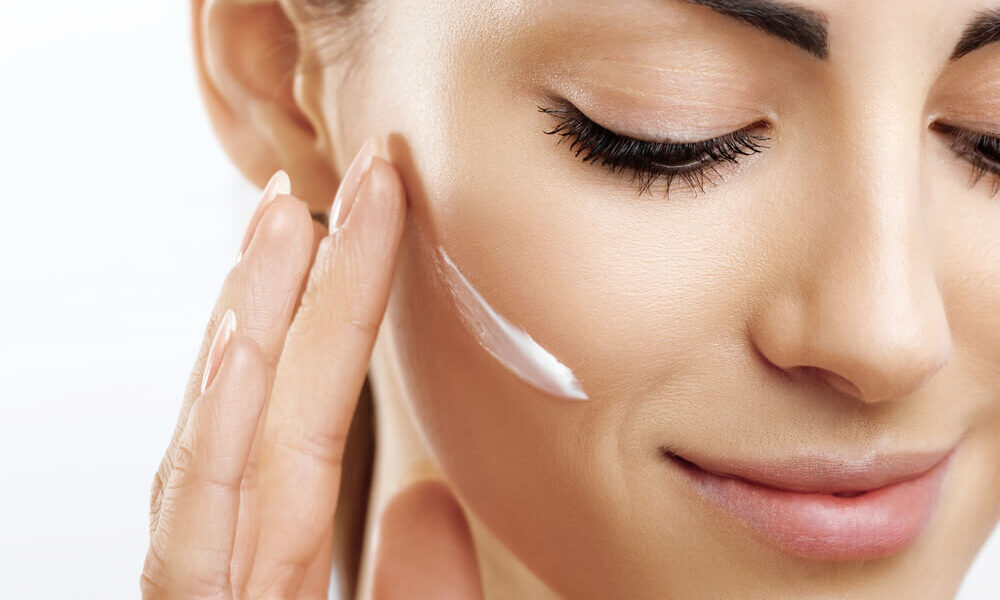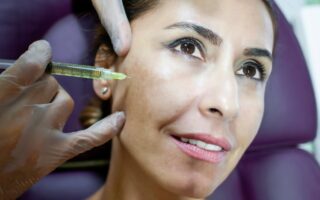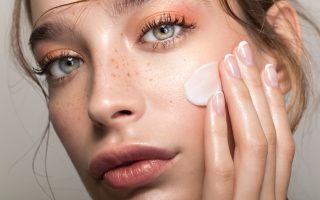Table of Contents
What kind of medicine is this?
Tretinoin, pronounced “TRET I noe in,” is a type of vitamin A that occurs in its natural state. It is applied to the surface of the skin in order to address the signs of ageing that appear on the face, such as crow’s feet, wrinkles, and age spots.
This medication may also be used for other conditions; if you have any queries regarding tretinoin creams it is possible applications, consult your doctor or pharmacist.
COMMON BRAND NAME(S): Renova
Before I start using this medication, what should I discuss with my primary care physician?
They have a right to know if you suffer from any of the following conditions:
eczema an abnormally high level of photosensitivity
a history of sunburn, an unusual or adverse reaction to tretinoin, vitamin A, or any other drugs, foods, colours, or preservatives, pregnancy or trying to get pregnant, or breastfeeding.
If you’re looking for an effective way to reduce the appearance of fine lines and wrinkles, consider trying Veana Natural Line’s Argireline Creme Antifalten Hautglattung. This high-quality, natural product is designed to help smooth out wrinkles and improve skin elasticity, leaving your skin looking youthful and radiant.
What is the correct way to take this medication?
This drug is solely intended for topical application. Do not take this medication by mouth. Always make sure to follow the instructions on the label of your medicine. Before using, give your face a gentle cleanse using a soap that does not include any medications. Dry the skin with a towel. If you want to reduce the risk of skin irritation, you should wait between 20 and 30 minutes for your skin to dry before using the product. Apply the medication so that it completely covers the affected region, then gently rub it in. It is important to keep this medication away from your mouth, eyes, nostrils, and the angles of your nose. Do not use more frequently than has been recommended by your physician or other qualified health care provider. An excessive use of this medication can cause your skin to become irritated, and doing so will not result in quicker or better outcomes.
Have a discussion about the use of this medication in children with your child’s paediatrician or another qualified medical expert. It’s possible that further care is required.
In the event that you believe you may have taken an excessive amount of this medication, you should immediately contact a poison control centre or an emergency room.
What should I do if I forget a dose?
If you forget a dose, you should skip that dose and continue taking the medication according to the schedule that you normally follow. Do not take additional doses or take the medication for a longer amount of time than prescribed by your primary care physician or another qualified medical expert.
What other substances might react with this medication?
medicines or other preparations that may cause your skin to dry out, such as benzoyl peroxide or salicylic acid medicines that may increase your skin’s sensitivity to sunlight, such as tetracycline or sulfa drugs medicines or other preparations that may cause your skin to itch, such as calamine lotion or lanolin
It’s probable that this list doesn’t cover all of the possible interactions. Provide your primary care physician with a list of all the medications, herbs, over-the-counter pharmaceuticals, and dietary supplements that you are currently using. Also let them know whether you are a smoker, a drinker, or if you take any illicit drugs. It’s possible that certain things could react badly with your medication.
What side effects should I be on the lookout for when using this medication?
It is possible that you will not see any changes in the wrinkles on your face straight soon. It could take up to four months before any visible results appear. This drug does not smooth out wrinkles or treat sun damage to the skin to any significant degree.
Unless otherwise ordered by your primary care physician or another qualified medical expert, you should not wash your face more than twice or three times each day. Do not apply any of the following products to the same regions that you are treating with this medication, unless your physician or another qualified health care provider specifically instructs you to do so: other topical agents that have a strong drying effect on the skin, such as products with a high alcohol content, astringents, spices, the peel of lime or other citrus, medicated soaps or shampoos, permanent wave solutions, electrolysis, hair removers or waxes, or any other preparations or processes that might dry out or irritate your skin.
This medication has the potential to increase your sensitivity to the sun. Stay out of the direct sunlight. Wear protective gear and make sure to apply sunscreen if you can’t help but be outside in the sun. Avoid using sun lamps as well as tanning beds and booths. If you can, go somewhere warm and out of the wind as much as possible, and wear clothing that will protect you from the elements. The skin that has been treated with this medication may become more susceptible to windburn and dryness.
What potential adverse reactions could there be from taking this medication?
You should report the following side effects to your physician or another qualified medical expert as soon as possible:
changes in the treated areas’ hue, either darker or lighter
extreme discomfort in the form of burning, stinging, crusting, or swelling in the treated areas
Side effects that, in most cases, do not necessitate seeking medical attention (although you should let your doctor or another health care expert know if they persist or become bothersome):
heightened sensitivity to the effects of the sun
red, swollen, itchy, and irritated skin that may peel after a few days; symptoms include itching, moderate stinging, and swelling.
It’s conceivable that this list doesn’t cover all of the potential negative consequences. Make an appointment with your primary care physician to discuss any adverse effects. You can call the FDA at this number: 1-800-FDA-1088 to report any adverse effects.
Where should I store my medication, if you please?
Make sure that children can’t get their hands on it.
Store at room temperature between 15 and 30 degrees C (59 and 86 degrees F). Do not freeze. Avoid exposure to light. After the expiration date, any medicine that has been used but not finished should be thrown away.




